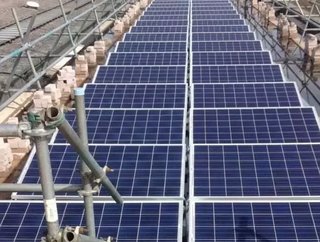F1 Manufacturing makes strides in sustainable production

A manufacturer in the Midlands, UK, is leading the way in sustainable production having installed Biomass heating and solar panels at its Leicester site.
F1 Manufacturing designs and manufactures components for a range of industries including electrical, architectural and lighting. The company has recently invested in two renewable energy sources as part of a commitment to reducing its carbon footprint in 2016.
The changes to the 36,000 square foot site is set to save the company over £170,000 whilst making their large production levels more sustainable. The 28.5kWp Solar PV array will generate over 24,000 kWh annually, saving an estimated 243 tonnes of carbon during their 20 year life span. F1 Manufacturing made further strides by fitting a Biomass system which is a more efficient way of heating the premises including both production and office space.
Scott Kirkpatrick, F1 Manufacturing’s MD, commented: “In this industry especially, we feel strongly about the importance of monitoring our carbon footprint. These changes have already made a very positive impact in the short space of time that they have been installed.”
Advances in technology have resulted in renewable energy options becoming a more viable option for businesses looking for an alternative to conventional energy sources. Using the Biomass system, the company will create a 90% carbon reduction in comparison to using an oil powered heating system. The system is also cheaper to run than conventional systems.
“Many organisations are put off by the initial expense of installing such equipment. However, within a short space of time we’re now realising that they pay for themselves very quickly. As part of our ongoing sustainability drive we will keep up to date on ways to reduce our carbon footprint and act accordingly,” added Kirkpatrick.
The British Government has strict EU targets to meet by 2020, including a reduction of 20 percent in energy consumption as well as a 20 percent reduction in greenhouse gases along with a 20 percent increase in the use of renewable energy. Key to meeting these targets is helping and encouraging industries such as manufacturing, a high energy consumer, to look at alternative sources of energy.
Follow @ManufacturingGL and @NellWalkerMG
- Crowe UK: 2024 Manufacturing Outlook Report Explores GrowthProduction & Operations
- Top 10: Chief Manufacturing OfficersProduction & Operations
- Aerospace Insight: Where does Boeing make all of its PlanesProduction & Operations
- Comau's Automation Solutions for Outside of ManufacturingAI & Automation






